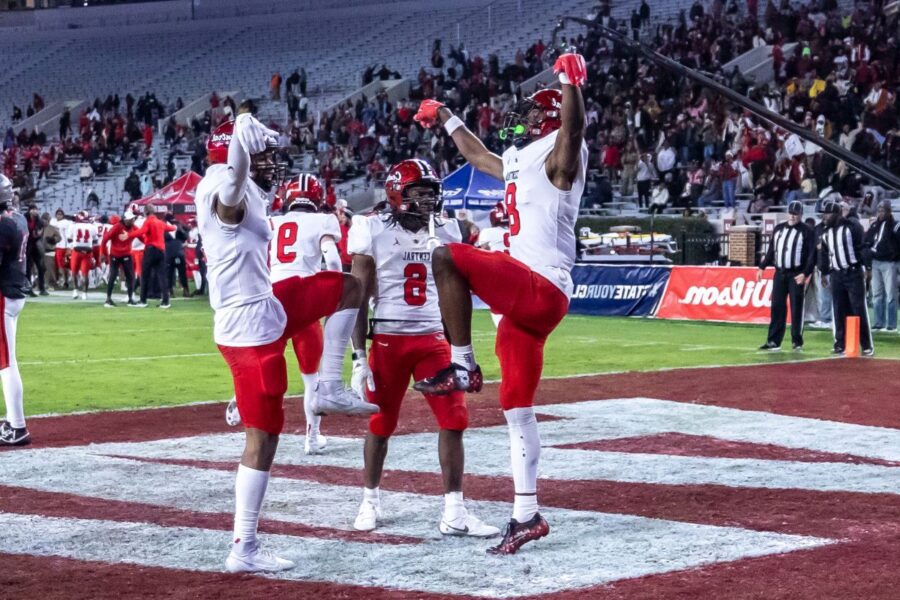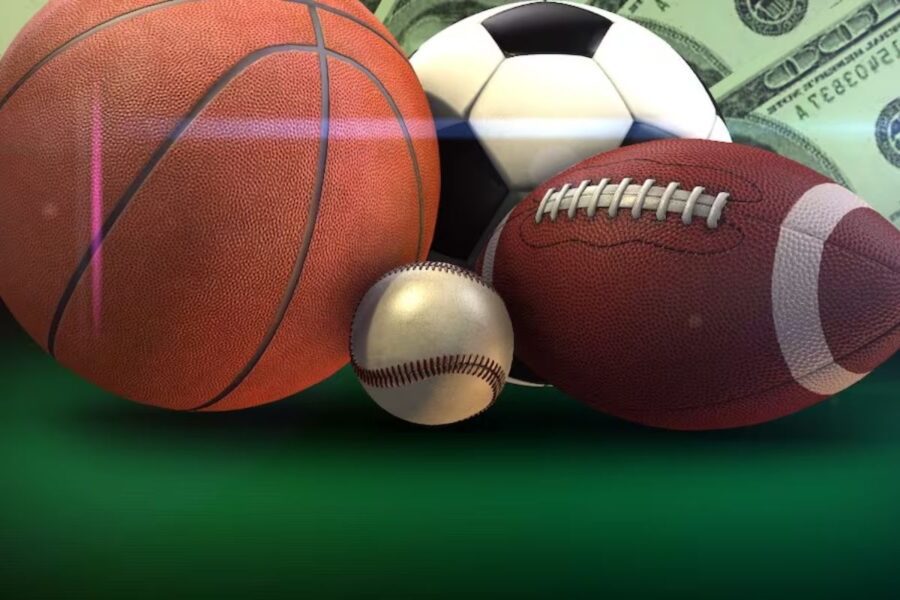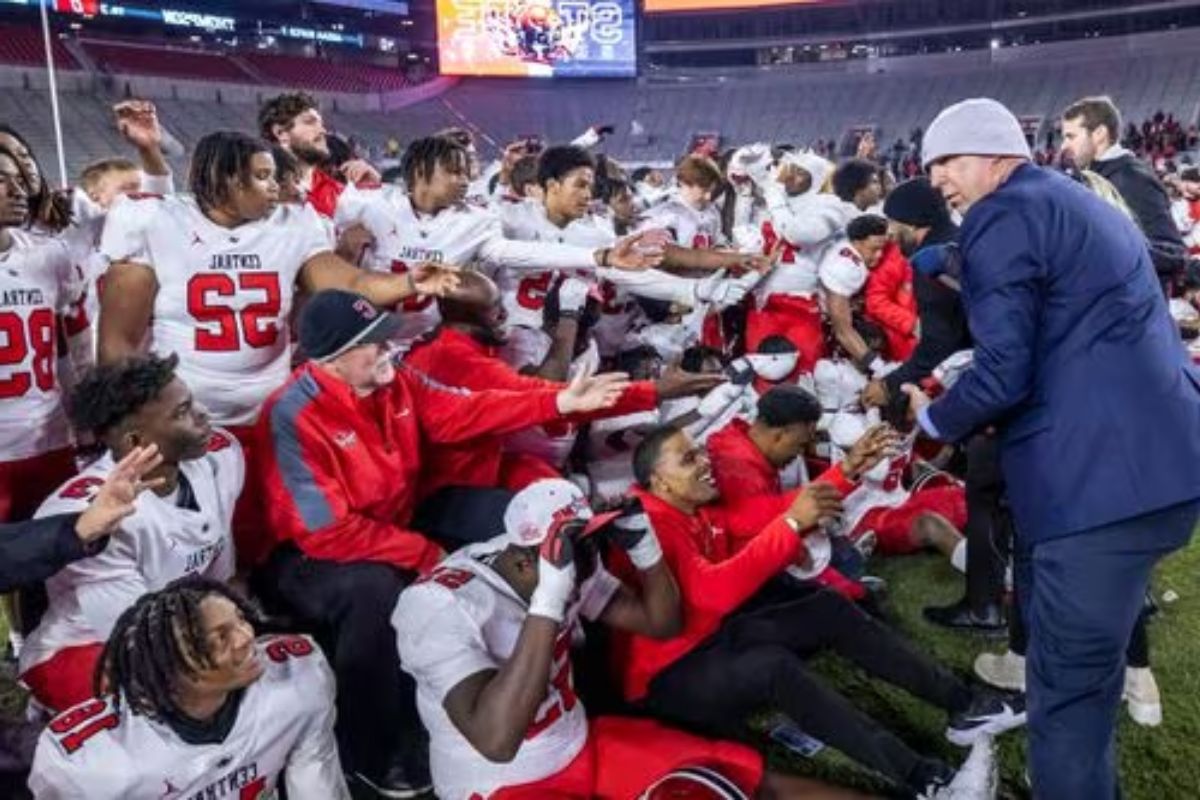Alabama High School Athletes: In a significant development for high school athletics in Alabama, a proposal is underway that could allow high school athletes to earn compensation through Name, Image, and Likeness (NIL) deals.
This initiative, spearheaded by Representative Jeremy Gray, has sparked discussions on the potential implications for student-athletes, schools, and the broader sports landscape.
As the debate unfolds, considerations around the impact on collegiate recruitment, amateurism principles, and athlete exploitation have emerged.
Stay tuned as the conversation around NIL rights for high school athletes continues to evolve.
Key Takeaways
- Representative Jeremy Gray’s bill in Alabama aims to allow high school athletes to earn from their Name, Image, and Likeness (NIL).
- Distinct frameworks are crucial to govern high school NIL deals separately from collegiate agreements.
- Opposition from high school football coaches raises concerns about fairness, oversight, and athlete well-being.
- Evaluating the potential impact involves balancing benefits for athletes with concerns about amateurism and competitive balance.
Introduction and Background
Amid the evolving landscape of high school sports, Representative Jeremy Gray has introduced a groundbreaking three-page bill in Alabama that aims to reshape how high school athletes can profit from their name, image, and likeness (NIL), with a strong focus on financial education. This bill comes at a time when high school sports are undergoing significant changes nationwide, particularly regarding the compensation of student-athletes. Representative Gray’s proposal seeks to empower high school athletes by allowing them to monetize their NIL rights, a concept that has gained traction in collegiate and professional sports.
The focus on financial education within the bill is a crucial aspect, highlighting the importance of equipping young athletes with the necessary knowledge and skills to manage their earnings responsibly. By emphasizing financial literacy, this legislation not only provides opportunities for athletes to benefit from their NIL but also educates them on how to make informed decisions about their finances. If passed, this bill could pave the way for a new era where high school athletes in Alabama have the chance to earn from their talents while learning valuable lessons about money management.


Representative Jeremy Gray’s Proposal
Representative Jeremy Gray’s proposal aims to revolutionize the landscape of high school sports in Alabama by introducing a pioneering bill that enables student-athletes to profit from their name, image, and likeness rights while emphasizing the importance of financial education.
Gray’s initiative acknowledges the significant financial opportunities present in sports and seeks to empower high school athletes to benefit from their personal brands. However, it is crucial to note that his proposal deviates from college-level NIL deals.
The bill includes specific restrictions, such as prohibiting the use of school logos and preventing high schools from directly paying players for recruitment purposes. By implementing these limitations, Gray aims to strike a balance between allowing student-athletes to capitalize on their NIL rights while maintaining the integrity and amateurism of high school sports.
This strategic approach sets the stage for a new era where young athletes can navigate the complexities of NIL agreements with guidance and support.
Distinguishing High School and Collegiate NIL Deals
Drawing a clear distinction between high school and collegiate NIL deals is crucial to establishing a framework that caters to the unique dynamics of each level of athletic competition. Representative Gray’s emphasis on this differentiation aims to prevent the confusion that could arise from treating high school and college athletes the same in NIL matters. By collaborating with the Alabama High School Athletic Association, efforts are being made to align the state’s approach with successful models used in other states. To illustrate the disparities between these two levels, a comparison can be made in the table below:
| Aspect | High School NIL Deals | Collegiate NIL Deals |
|---|---|---|
| Eligibility Rules | Varies by state; often limited | NCAA regulations apply |
| Oversight | State high school athletic associations | NCAA, conferences, and universities |
| Sponsorship Scope | Local businesses, limited national exposure | National and international brands, broader opportunities |
This table showcases the key differences in how NIL deals are approached at the high school and collegiate levels, highlighting the necessity for tailored frameworks to govern each.
Opposition from High School Football Coaches
High school football coaches, including Keith Etheredge of Auburn High School, are voicing opposition to the proposed NIL regulations, expressing concerns about potential negative impacts on high school sports. Coach Etheredge highlights the need for proper policing to prevent back-door deals and cites uncertainties around rules and oversight.
The opposition from high school football coaches stems from a variety of reasons, including:
- Fear of creating an uneven playing field among high school athletes.
- Concerns about increased pressure on young athletes to perform for financial gain.
- Uncertainties about how NIL deals may affect team dynamics and morale.
- Worries about the potential exploitation of student-athletes by third parties seeking to profit from their name, image, and likeness.
These concerns underscore the complex considerations surrounding the introduction of NIL regulations at the high school level and the importance of addressing them to protect the integrity of high school sports.
Evaluating the Potential Impact
Evaluating the potential impact of allowing high school athletes to earn NIL money involves a thorough examination of the various implications on student-athletes, sports programs, and the overall landscape of high school athletics. The concerns raised by Coach Etheredge highlight the need for a delicate balance in implementing such a system. It is crucial to consider the potential pitfalls and challenges associated with introducing financial elements into high school sports.
Proponents argue that allowing athletes to benefit from their Name, Image, and Likeness (NIL) rights could provide opportunities for student-athletes to capitalize on their talents. Critics, however, express worries about the potential consequences on amateurism, competitive balance, and the overall integrity of high school sports.
Assessing the feasibility and implications of Representative Gray’s proposal is essential in determining the potential impact on the high school athletic landscape. Understanding the various perspectives and conducting a comprehensive analysis will be key in navigating the complexities of this significant change in high school athletics.


Conclusion
The proposed legislation in Alabama may allow high school athletes to earn money through NIL deals, similar to collegiate athletes.
This initiative raises questions about the distinction between high school and collegiate athletics, as well as potential impacts on the recruiting landscape and athlete development.
Despite opposition from some high school football coaches, the decision to allow NIL deals for high school athletes could significantly impact the future of high school sports in Alabama.
Our Reader’s Queries
Does Alabama have an NIL law?
On February 3, 2022, Alabama repealed its Name, Image, Likeness (NIL) law, overturning the previous bill enacted in April 2021. This legislative update reflects the state’s evolving stance on NIL rights for athletes.

